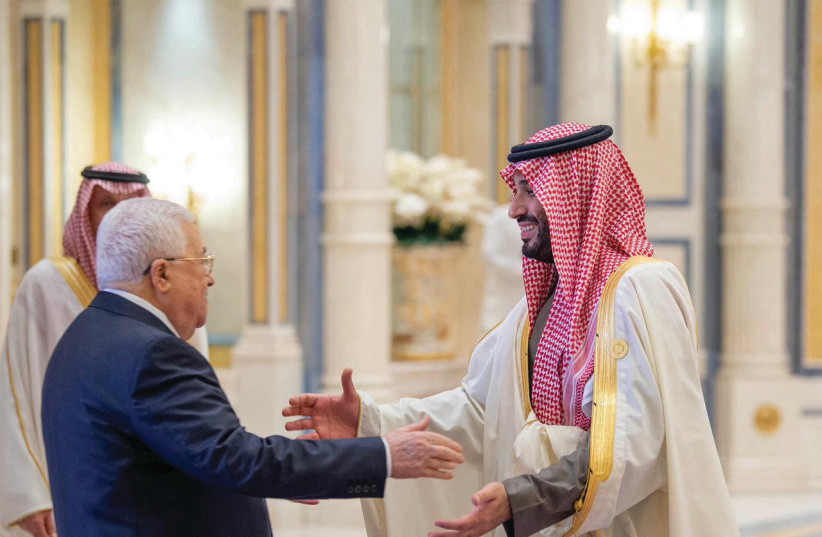US Secretary of State Antony Blinken spoke to his Saudi counterpart, Foreign Minister Prince Faisal bin Farhan Al Saud, on Friday night, discussing the ongoing Israel-Hamas War.
According to a statement by the US Department of State, they discussed Blinken's "upcoming travel to the region and ongoing work to establish a more integrated, peaceful region that includes lasting security for Israelis and Palestinians alike.
"The Secretary reiterated the importance of securing a humanitarian pause that includes the release of hostages held by Hamas."
This statement came out shortly after sources revealed that Saudi Arabia would be willing to accept a political commitment from Israel to create a Palestinian state, rather than anything more binding, in a bid to get a defense pact with Washington approved before the US presidential election.
Why would Saudi Arabia make such a move now?
Months of US-led diplomacy to get Saudi Arabia to normalize relations with Israel and recognize the country for the first time were shelved by Riyadh in October in the face of mounting Arab anger over the war in Gaza.

But Saudi Arabia is increasingly keen to shore up its security and ward off threats from Iran so the kingdom can forge ahead with its ambitious plan to transform its economy and attract huge foreign investment, two regional sources said.
Saudi Arabia, then, would not insist Israel take concrete steps to create a Palestinian state and would instead accept a political commitment to a two-state solution, two senior regional sources told Reuters.
Such a major regional deal, widely seen as a long shot even before the Israel-Hamas war, would still face numerous political and diplomatic obstacles, not least the uncertainty over how the Gaza conflict will unfold.
Al Saud told CNN on the sidelines of the World Economic Forum in January that there could be no normalization of ties with Israel without resolving the Palestinian issue.
Still, Saudi Arabia has not been too kind to Israel publicly. During the aforementioned interview, the Saudi foreign minister said, "What we are seeing is the Israelis are crushing Gaza, the civilian population of Gaza. This is completely unnecessary, completely unacceptable, and has to stop."
Saudi Arabia determined to create a Palestinian state
Riyadh has been pushing for the creation of a Palestinian state for quite some time, but the war has exacerbated the issues that would potentially be solved through a two-state solution.
This week, sources revealed that Saudi Arabia, Egypt, Jordan, and the Palestinian Authority held a secret meeting in Riyadh the week before that was focused on plans for Gaza governance when the war is over.
They also reportedly discussed ways in which a “renewed Palestinian Authority” can take part in the management of the Strip.
